
Diwali, or Deepavali, is a festival of lights and is one of the major festivals celebrated by Hindus, Jains, and Sikhs. It usually lasts for five days, with different celebrations for each day. The festival gets its name from the row (avail) of clay lamps (deepa) that Indians light outside their homes to symbolize the inner light that protects them from spiritual darkness. Diwali, falling on October 24th this year, is typically held during October or November and is based on the Hindu calendar.
For Diwali, we spoke to three SEI consultants — Monica Bhalla, Smital Patel, and Anuja Agnihotri — to discover how their upbringing has shaped who they are, how they continue to stay immersed in their culture, and what they would like people to know about the holiday.
Growing up, how were you immersed in your culture, and how has it shaped you into the person you are today?
Smital: Growing up in Dallas, I was part of a large South Asian community, so I felt immersed in my culture because it was always present. My family and I were able to integrate into the community, which was important to my parents because they were immigrants and wanted me and my siblings to be raised with similar values to the ones they grew up with. In our community, there were a lot of festivities held by local organizations, and I was able to attend them with family as well as friends that were part of the community. I learned plenty about the culture and the traditions because I had so many people around me that shared those same values. Even though I grew up outside of India and am now in Chicago, away from my community in Dallas, I’ve carried the culture with me and celebrate it everywhere I go.
Monica: I grew up in Chicago with a large family, and we followed many traditions with a modernized, American spin. We continue to do many traditional activities, especially during Diwali. One tradition is Puja, where we have a priest visit our home with our family and close friends and spiritually celebrate. Celebrating with food was also something I was deeply immersed in. I started a tradition of making jalebi, a popular Indian dessert, during the holiday to honor my grandfather’s wishes. Even now, I always think of him when I make it. When I lived in Los Angeles, I didn’t celebrate as I did in Chicago, but I had friends I introduced to my traditions, which they greatly appreciated. Things have changed due to the pandemic, but I still immerse myself in and celebrate my heritage with family and friends.
Anuja: I was born in Mumbai and moved to Dubai when I was four. The plan was for us to live there for two years and move back to Mumbai. 30+ years later, my family still calls Dubai their home! Like Smital, we had a huge Maharashtrian and Indian community in Dubai, so I grew up surrounded by that. As Brahmins, we also do Pujas at home, either by inviting a priest or doing it ourselves. My brother and I were able to integrate into the community and embrace our culture through various traditional festivities we celebrated back home, whether it was the meaning behind the holiday, music, dance, food, clothes — the whole shebang! After leaving Dubai for my education, I continued to learn and immerse myself in other cultures and share mine with others. Even though I have moved around so much, I feel close to my culture because I have a hunger to keep in touch with my roots and continue to honor the values I grew up with.
How do you continue to stay immersed in your culture?
Anuja: I am always in contact with my family and friends back home. When we moved to Dubai, it was with my immediate family — my parents and my brother — so our friends became our extended family. I loved being part of their festivities and celebrations. Locally, I am also close with my in-laws, who celebrate Sikh and Islamic traditions. Knowing what I have from back home, as well as what I continue to learn here, I can take these different traditions and continuously shape myself. This is something I hope to pass on to my children — to encourage them not only to embrace their roots but learn to adapt and share their culture as they travel the world, just like my parents taught me. I also love wearing traditional clothing, which reminds me of home and family. It seems like a simple thing, but it gives me a sense of deep appreciation for my culture. While it’s a little more difficult nowadays to keep up with traditions when I’m not in a large community, I continue to do what I can. Just recently, I satisfied my dance cravings by leading a Bollywood dance class for the Cincinnati office!
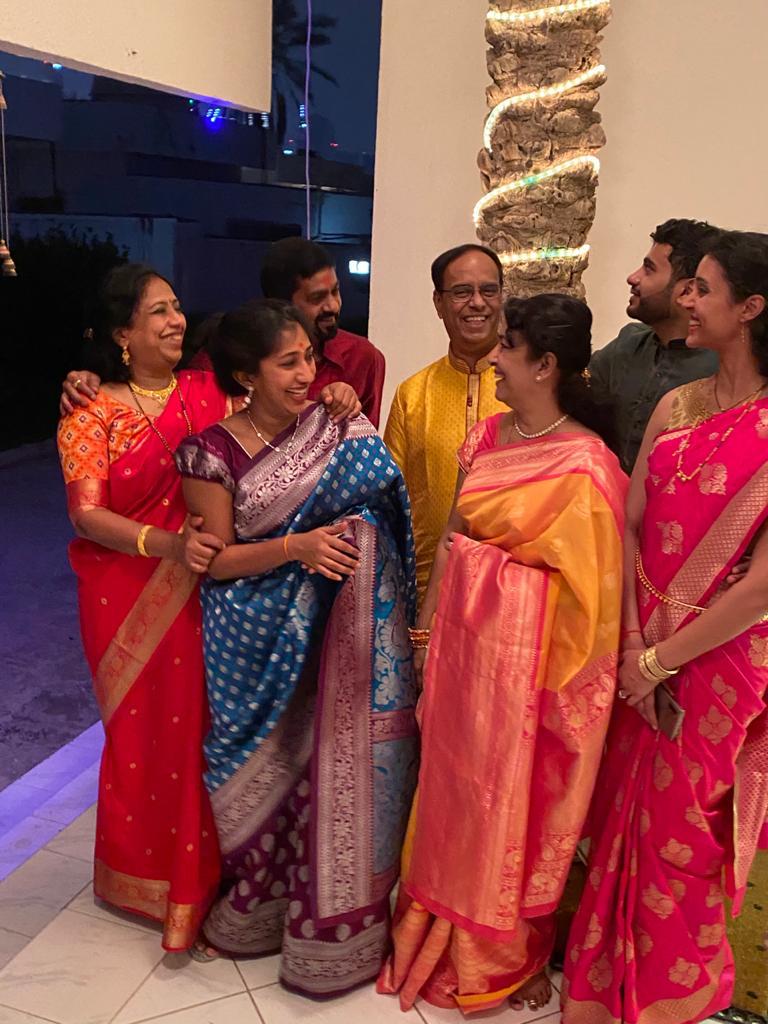
Monica: Like Anuja, I stay in constant contact with my family and continue to celebrate the traditions I had growing up. My boyfriend is Gujarati, so I get to learn how different his celebrations are. Clothing is one of the most important things for me because I love to dress up and dance to our music — they are fun parts of the celebration. I don’t often wear traditional clothes, but it’s exciting when I do because you can be as creative and intricate with them as if you were attending your own wedding! I love watching my nephews be immersed in Hindu traditions, and I’m excited to hear what they remember about Diwali and discover what new traditions we will create together.
Smital: One thing I will add is that I didn’t appreciate my culture as much as I do now until I moved away from my family and community. When I was younger, my mother would have to remind me when it was Diwali. Now, I always remember and cherish that. I always try to celebrate by going home to my family or getting together with my in-laws. Even if it’s just a celebration with friends, I like to dress up and do some traditional celebrations with them. As first-generation Indian-Americans, I think we are all trying to figure out how to make Diwali our own by taking traditional aspects and keeping them alive in the modern day.
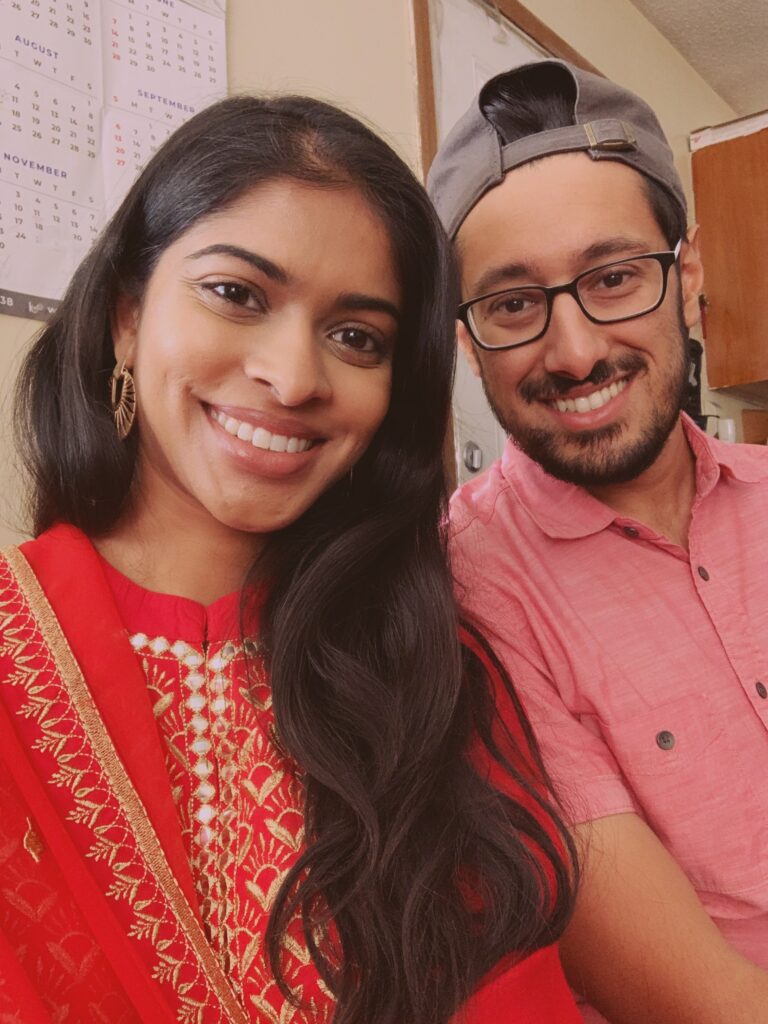
What does Diwali mean to you, and how do you celebrate Diwali today?
Smital: For me, food is a big part of the celebration. At a minimum, I will go to an Indian restaurant and eat the cuisine during Diwali. When I moved to Chicago, I would get friends together and have dinner to celebrate. Even if I can’t be with family and celebrate in a grandiose way, I can at least enjoy the food!
Monica: I definitely agree when it comes to food, especially cooking jalebi. My mom and grandma are great cooks, and one of the most enjoyable aspects of the holiday is cooking and eating together. Like I mentioned, dressing up is also one of the best parts — I’m still thinking about what I’ll wear when I see my parents for the holiday! I know my nephews have some of the cutest outfits planned, so I’m excited to see them. While these seem like small things, they contribute to the big picture, especially when I think back to when I was in Los Angeles and away from family. I really appreciate all the things we do to celebrate.
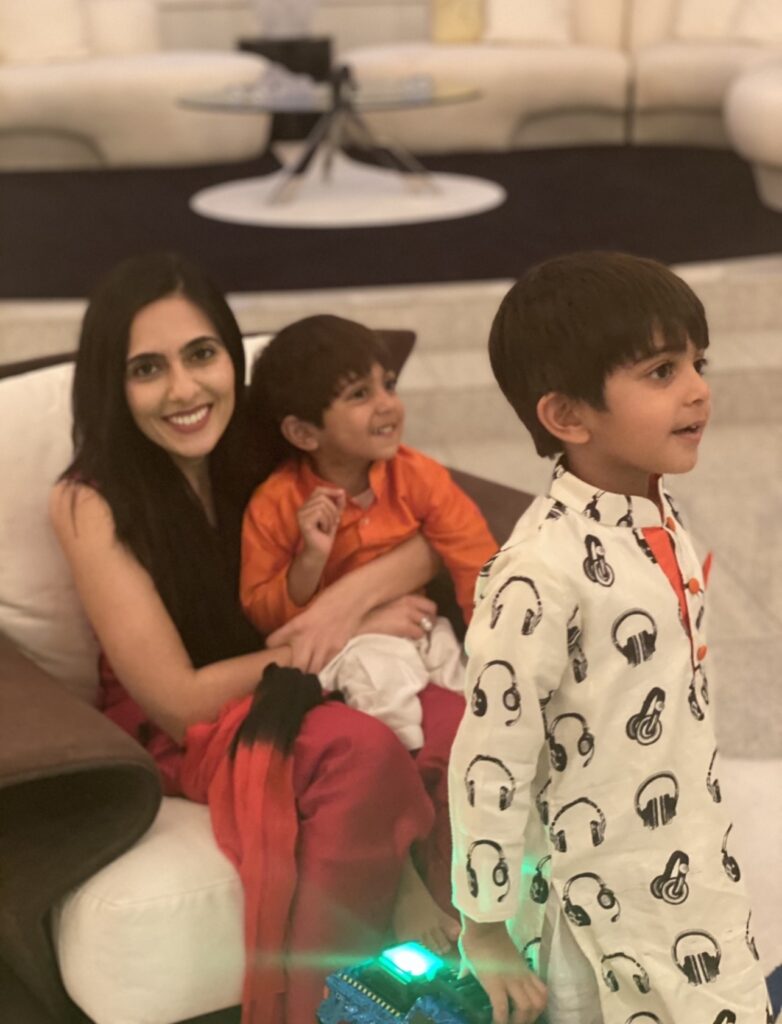
Anuja: That’s so cool that your nephews have outfits! When I was younger, kids’ clothing wasn’t as fashionable as it is now! In fact, in India, shopping for Indian clothes is a dream — styles, colors, and materials — it is all very different from what you would be able to buy here. I love window shopping in India and trying on clothes, jewelry, and shoes.
In addition to what everyone else has said, the one thing that I crave during Diwali is getting people together to celebrate. Food is the simplest thing I have done to celebrate. I especially miss my favorite homemade sweets (my mom makes them every Diwali!). But even getting a group of people to go for dinner or doing an activity that day puts me in such a good mood. It’s nice to be with your community to remind you of home, and my husband and I are grateful that we have people in our lives willing to partake in our traditions and celebrate with us.
What is one Diwali memory that you cherish?
Monica: This past year was pretty memorable because COVID made us revamp our celebration. Prior to COVID, we always had a priest come to our house for Puja and invited everybody over to make it a huge celebration. It’s usually a celebration over multiple weeks where people invite each other to their houses, but having moved back to Chicago during the pandemic, we couldn’t have those events. We actually did the Puja ourselves by cramming into a little prayer room, and we had my nephews light up the whole house. It was a little quieter than I was used to, but it was also nice. It put many things into perspective; I realized that we all had our health and immediate family together, and it was a good Diwali regardless of it being different.
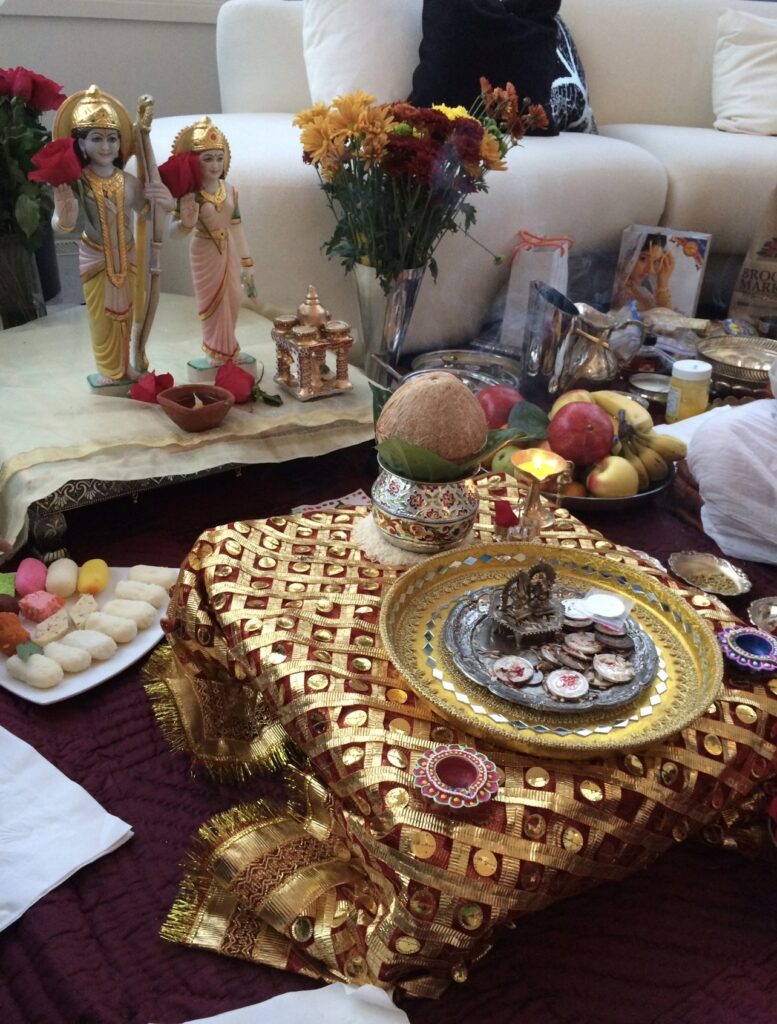
Smital: I would say one of my most memorable celebrations was my senior year of high school. One family in our community hosted a celebration the day after Diwali, which is a New Year’s celebration for Gujarati people. It was one of the few celebrations where we celebrated with a larger group of people. For us teenagers, realizing that we were all going away for college and may not be able to celebrate like we used to, it was nice to have this moment. Another memorable one was during the pandemic when my husband and I were on our honeymoon, and we had Diwali with my in-laws. It was different, but it was nice to have family around in an intimate setting to celebrate.
Anuja: The first memorable Diwali that comes to mind was during COVID. I packed up my things in Toronto and went to Dubai to spend Diwali with my family, so I was excited to have a big celebration all over again. Alas, the pandemic happened, so we repurposed the celebration to just my immediate family. My mom made all my favorite food and sweets, and the rest of us decorated the house with lights, rangoli, and diyas — it was still very festive! Another memory that comes to mind is when I was in grad school in Toronto. My classmates and I had a ball celebrating Diwali together. It was amazing to see people of different backgrounds celebrating and even wearing traditional clothes! I feel like my time in Toronto shaped my passion for DE&I because I saw a diverse group of people open to learning and immersing themselves in different cultures.
What would you like people to know about Diwali?
Smital: There are many days leading up to Diwali that are special and exciting, and each has its own celebrations, ceremonies, and traditions. One my family celebrates involves having a Puja and washing money as an offering, which is supposed to bring wealth. On another day, you invite your brothers over and have dinner, celebrating the bond between brothers and sisters. It’s a really festive time leading up to Diwali, and there’s a lot going on in the South Asian community that people could learn about and celebrate.
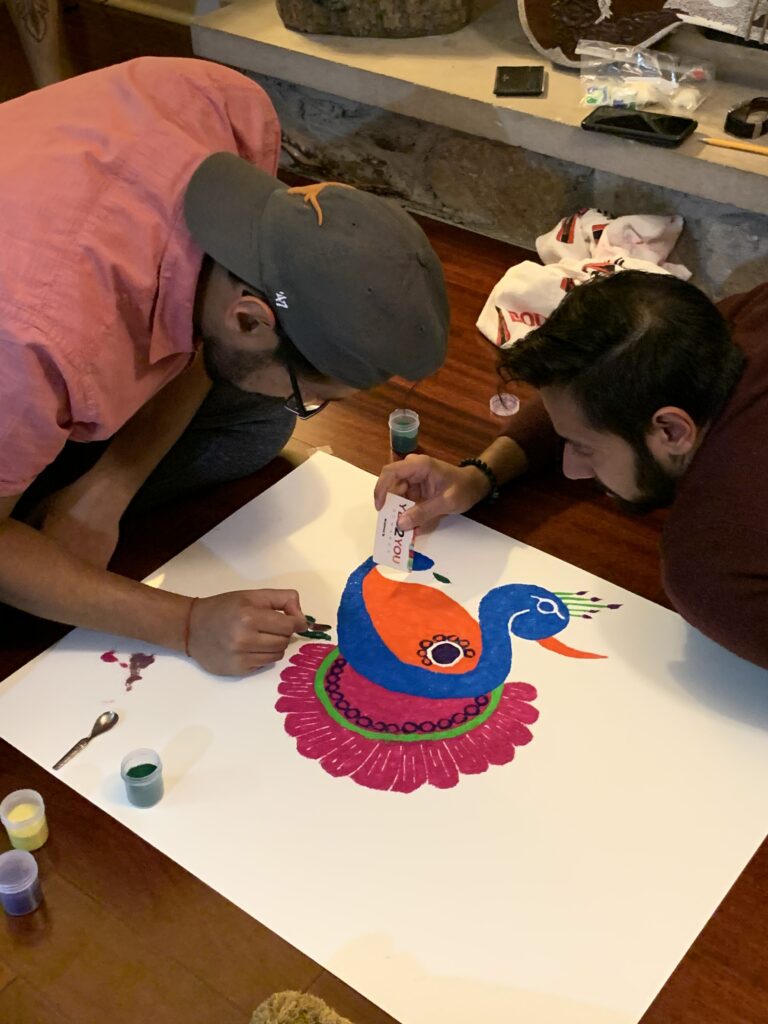
Monica: I would want people to know that everyone from India is celebrating and has their own traditions. No matter where you’re from, they celebrate in many ways, religiously or not, and it’s even different across Indian state lines! It may be an Indian holiday, but it’s based on your own traditions, and you can make it what you want.
Anuja: Apart from the traditions, spirituality, food, and clothes, what I’d like people to know is that it is a celebration — it is the victory of good over evil, light over darkness. Diwali is a multi-day festival, and so many communities bring unique aspects to the festivities. I love that people come together and celebrate in many ways. Also, I can’t complain that five days of Diwali means I get to wear different outfits throughout the festival, check out decorations, and indulge in my favorite sweets!

